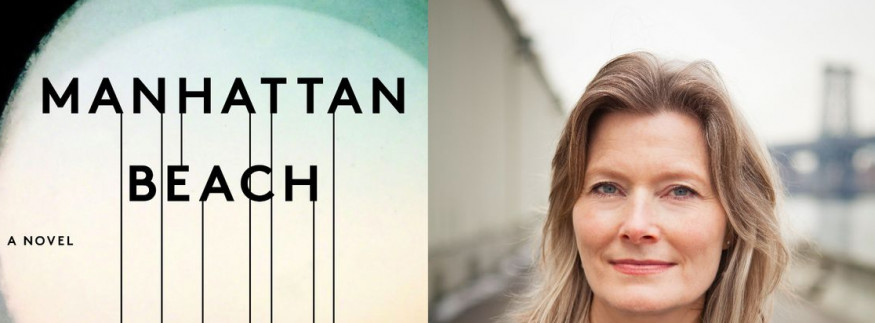Here Is What Jennifer Egan Had to Say About Her Nomination for the Walter Scott Prize
award book Books Egan feature features Female female authors fiction historical fiction Jennifer Jennifer Egan literature nomination novel trending women
Sherif Khairy
While history holds a ton of stories within its realms, writers can still add something unique to the lines already written. This is where historical fiction comes in, a type of writing that takes pieces of history, and adds bits and pieces to it, looking at it from a different perspective, and allowing us to perceive a completely new dimension of the stories we may know.
Today we’re talking about Jennifer Egan, the author famous for her Pulitzer-winning book, A Visit from the Goon Squad in 2011. Her most recent book, Manhattan Beach was shortlisted for the Walter Scott Prize for Historical Fiction, and as is their habit, the Walter Scott Prize judging panel sat down with the shortlisted author for a spotlight on the background of her work.
Egan is known for her work in fiction, and she has always used anecdotes and experiences from her personal life to add authenticity to her stories. She’s “very reliant on times and places from [her] own life as points of connection to [her] work.” But this time, with historical fiction, she had no use for those points. In her words, she felt “so ill-qualified that she almost quit the novel, but now, she’s shortlisted for one of the most prestigious historical fiction awards.”
Certainly, such a transformation did not come by chance. Egan had to work for long and hard hours to acquire the knowledge she needed to accurately portray the time and place she chose: Depression and World War II-era, New York. The inspiration came from her interviewing various elderly New Yorkers, gaining insights from them about that period. The research period actually ran for a large number of years. As she told the judges, “Once I began writing in, 2012, I also began researching in a more directed (and sometimes more frantic) way, trying to get ready to write scenes that simply couldn’t be written, even crudely, without research.”
While the story is fictional, it revolves around historical events with people from an era that has long passed. It takes a lot of work to write the right phrase, choose the right word, and create the right character. Egan sees a lot of importance in historical writing. She believes that “people seem to operate in a sort of continuous present; everything seems new, all the time, when in fact much of what happens conforms to patterns that are visible throughout history.” She views historical fiction as a means of looking to the past, and making comparisons with our present. Good historical writing, she believes “can raise consciousness in important ways.”
recommended
 Cafés
Cafés
Bite Into the Croffle Craze: The Best 5 Spots to Try Croffles in Cairo
cafes cairo +2 City Life
City Life



